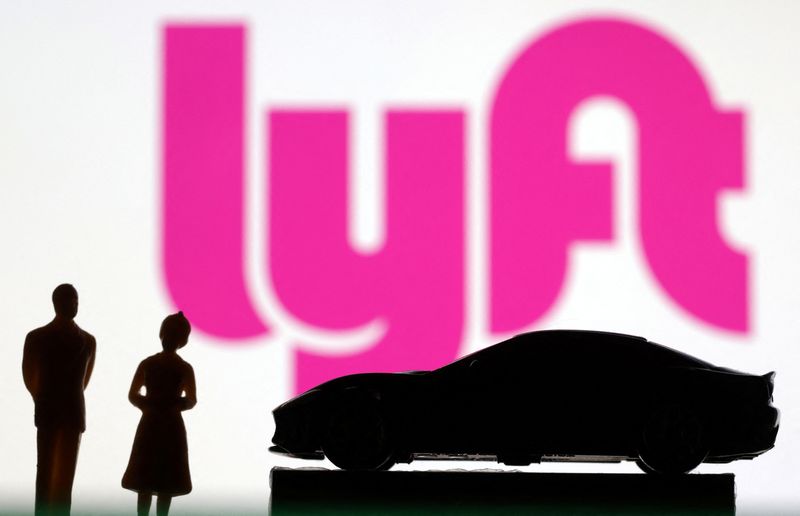By Samrhitha A
(Reuters) -Lyft's forecast error that sent shares into a tizzy overnight may invite regulatory or legal scrutiny, analysts and experts said on Wednesday, overshadowing its solid quarter and forecast.
An error in its earnings statement caused a brief 67% surge in shares before a clarification from Chief Financial Officer Erin Brewer in a conference call with analysts.
Lyft (NASDAQ:LYFT) said incorrectly that a key margin metric was expected to rise by 500 basis points this year, but Brewer later corrected that forecast to an increase of 50 basis points.
Still, Lyft shares surged to a one-year high on Wednesday and were last up 34%, putting them on course to add more than $1.65 billion to the market value. The company said it cut expenses by 12% in 2023, helping it exceed the average Wall Street estimate.
About 48 million shares traded after-hours Tuesday, more than triple the usual daily regular-session volume in the stock.
"The SEC will probably review the situation given the scale of the share price movement upon release of the original results and Lyft could potentially be fined," said Dan Coatsworth, an investment analyst at AJ Bell.
Analysts said the surge could have included significant short covering from hedge funds. Lyft had short interest of $566.1 million, or 13.1% of its free float as of Feb. 12, according to data and analytics firm Ortex.
Whether the company could face legal liability is unclear, experts said.
"Since the error relates to a forecast, it's likely that liability under securities regulations will not attach unless it can be proved that it was made with knowledge that it was wrong or with some intent to mislead," said Bobby Reddy, professor of corporate law and governance at the University of Cambridge.

Still, some investors may test "the limits of legal theory under other heads, potentially with a view to seeking settlements," Reddy added.
Lyft traded at 20.27 times its 12-month forward earnings estimates compared with rival Uber (NYSE:UBER)'s 49.75. Uber shares gained 12% after its $7 billion buyback announcement.